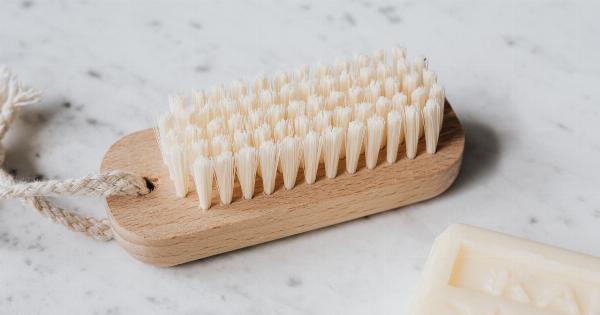Having a healthy and glowing complexion is something most people strive for. However, skin irritation can disrupt this goal, causing discomfort, redness, itchiness, and even pain.
Identifying the culprits behind skin irritation and finding effective cures is essential for maintaining good skin health. In this article, we will explore common causes of skin irritation and provide practical tips to tackle them, promoting healthier, happier skin.
Allergies: A Common Trigger
Allergic reactions are one of the leading causes of skin irritation.
Various substances, such as pollen, pet dander, certain foods, and even certain skincare products, can trigger an allergic response, resulting in symptoms like rashes, hives, and itching. If you suspect allergies as the cause of your skin irritation, it is advisable to consult with an allergist for proper testing and diagnosis.
To avoid allergic skin reactions, it is crucial to identify the specific allergens causing the irritation. This can be done through allergy tests or by carefully observing and documenting the symptoms along with the suspected triggers.
Once the allergen is identified, it is recommended to avoid or minimize exposure to it. Additionally, using hypoallergenic skincare products, free from common irritants, can help alleviate symptoms and reduce the risk of further irritation.
Dermatitis: An Inflammatory Response
Dermatitis refers to the inflammation of the skin. It can manifest in different forms, such as atopic dermatitis (eczema), seborrheic dermatitis, and contact dermatitis.
While the exact causes of dermatitis vary depending on the type, common triggers include stress, certain chemicals, climate changes, and specific substances the skin comes into contact with.
For those with atopic dermatitis, establishing a regular skincare routine is crucial. Opt for gentle cleansers and moisturizers specifically formulated for sensitive skin. Avoid harsh soaps, fragrances, and other potential irritants.
Moisturizing regularly and using mild, hypoallergenic products can help alleviate symptoms and protect the skin barrier.
Seborrheic dermatitis typically affects areas rich in sebaceous glands, such as the scalp and face. Antifungal shampoos containing ingredients like ketoconazole can effectively manage symptoms.
It’s also important to maintain good hygiene practices and avoid excessive moisture accumulation in affected areas.
Contact dermatitis occurs when the skin comes into direct contact with an irritant, such as certain fabrics, metals, or chemicals. Avoiding the irritant is crucial to preventing further irritation.
Additionally, applying soothing creams or ointments, such as those containing corticosteroids or natural ingredients like aloe vera, can help alleviate inflammation and promote healing.
Environmental Factors: Protecting Your Skin
Our skin is constantly exposed to various environmental factors that can contribute to irritation. For instance, exposure to harsh UV rays from the sun can damage the skin and lead to redness, dryness, and even sunburn.
To protect your skin from the sun, it is essential to apply a broad-spectrum sunscreen with a high SPF regularly. Wearing protective clothing, such as hats and sunglasses, and seeking shade during peak sun hours can further shield your skin from harmful UV rays.
Extreme weather conditions can also affect the skin. Cold and dry weather can cause skin dryness and chapping, while excessive heat and humidity can lead to sweat-related irritation and acne breakouts.
To combat these effects, it is important to adapt your skincare routine accordingly. Use a gentle cleanser and switch to a heavier moisturizer during colder months. In hot and humid weather, opt for lightweight, oil-free products to prevent clogged pores and breakouts.
Air pollution is another environmental factor that can contribute to skin irritation. Pollutants in the air can clog pores and cause inflammation.
To protect your skin from pollution, cleanse your face thoroughly every day and consider incorporating antioxidant-rich skincare products in your routine. Antioxidants, such as vitamin C and green tea extract, can help neutralize the harmful effects of pollutants.
Stress and Lifestyle: Finding Balance
Stress is known to have a profound impact on our overall well-being, including our skin health.
When we are stressed, our body releases stress hormones like cortisol, which can disrupt the normal functioning of the skin and exacerbate skin conditions, such as acne, psoriasis, and eczema.
Finding ways to manage stress is crucial for maintaining healthy skin. Engaging in relaxation techniques like deep breathing exercises, yoga, or meditation can help reduce stress levels.
Regular exercise and a balanced diet rich in antioxidants, vitamins, and minerals also contribute to overall skin health.
Other lifestyle factors that can contribute to skin irritation include smoking and excessive alcohol consumption. Both smoking and alcohol can deplete the skin of essential nutrients and hinder the body’s natural healing processes.
Quitting smoking and moderating alcohol intake can significantly improve skin health and reduce the risk of skin irritation.
Promoting Skin Health: The Importance of Skincare Routine
Developing a consistent skincare routine tailored to your skin type and specific needs is vital for both preventing and tackling skin irritation. Here are some essential steps to incorporate into your daily skincare regimen:.
1. Cleansing
Start by choosing a gentle cleanser that effectively removes dirt, oil, and makeup without stripping away the skin’s natural moisture. Avoid harsh cleansers that can disrupt the skin barrier and contribute to dryness and irritation.
Cleansing in the morning and evening helps maintain skin cleanliness and prevents clogged pores.
2. Exfoliation
Regular exfoliation helps remove dead skin cells, excess oil, and impurities that can accumulate on the skin’s surface. However, be cautious not to over-exfoliate, as it can cause skin irritation.
Opt for gentle exfoliators and limit the frequency to two or three times a week, depending on your skin’s tolerance.
3. Toning
Toners can help balance the skin’s pH level and remove any remaining traces of dirt or cleanser. Look for alcohol-free toners that soothe and hydrate the skin while prepping it for the next steps of your skincare routine.
4. Moisturizing
Applying a suitable moisturizer is essential for maintaining the skin’s hydration levels and preventing dryness and irritation. Choose moisturizers that suit your skin type, whether it is dry, oily, or combination.
Look for ingredients like hyaluronic acid and ceramides for intense hydration and a strengthened skin barrier.
5. Sun Protection
Include a broad-spectrum sunscreen with a high SPF in your daily skincare routine, regardless of the weather conditions. Sunscreen helps shield the skin from harmful UV rays and prevents sunburn, premature aging, and other skin damage.
6. Additional Treatments
Incorporating additional treatments like serums, face masks, and eye creams can address specific skin concerns and boost overall skin health. Look for products containing antioxidants, peptides, or retinoids, depending on your skin’s needs.
Consulting a Dermatologist
If skin irritation persists despite implementing preventive measures and using over-the-counter remedies, it is advisable to seek professional help.
Dermatologists can provide accurate diagnoses and recommend specialized treatments for various skin conditions, including chronic skin irritation. They can also offer personalized skincare advice tailored to your specific needs.
Remember that everyone’s skin is unique, and what works for one person may not work for another. It is essential to listen to your skin, observe how it reacts to different products and conditions, and adjust your skincare routine accordingly.
Consulting a healthcare or skincare professional is always a wise decision when it comes to your skin’s health.
Tackling skin irritation requires patience, careful observation, and a comprehensive approach.
By identifying the culprits behind skin irritation and implementing effective cures, you can promote healthier, happier skin and restore your complexion’s natural radiance.































